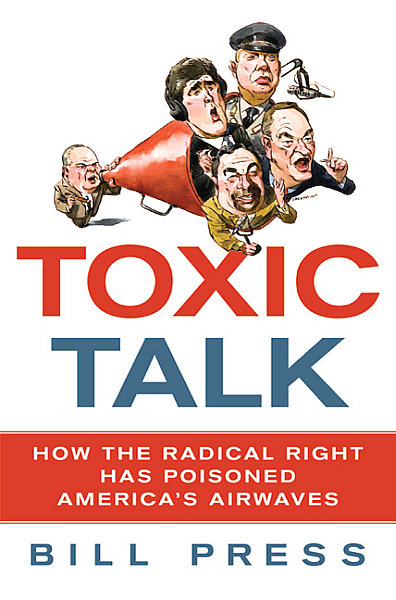 “Ever since 1987 and the end of the Fairness Doctrine, which freed station owners from having to provide any balance on the air, conservatives have dominated talk radio. To the point where today, according to a 2007 report of the Center for American Progress, there are at least 10 hours of right-wing talk for every one hour of progressive talk. And that’s a real problem. Not simply because this torrent of hate is unpleasant for most people to listen to. But because it also debases the level of political discourse in this country, at a time when we need it the most.“
“Ever since 1987 and the end of the Fairness Doctrine, which freed station owners from having to provide any balance on the air, conservatives have dominated talk radio. To the point where today, according to a 2007 report of the Center for American Progress, there are at least 10 hours of right-wing talk for every one hour of progressive talk. And that’s a real problem. Not simply because this torrent of hate is unpleasant for most people to listen to. But because it also debases the level of political discourse in this country, at a time when we need it the most.“
Personal plug: Bill Press’ Toxic Talk: How the Radical Right Has Poisoned America’s Airwaves, which I worked on in a research and editing capacity last year, is hitting bookstores today. (As longtime readers may remember, this is our fifth book together, along with Spin This (2001), Bush Must Go (2004), How the Republicans Stole Christmas (2005), and Trainwreck (2008).) In any case, I suspect regular readers here — all ten of you! — should be sympathetic to its central thesis: Right-wing talk radio is bad for our politics and for our country. (And hat-tip to Media Matters, a key resource for this book, for watchdogging these blustery carnival barkers on a full-time basis.)

